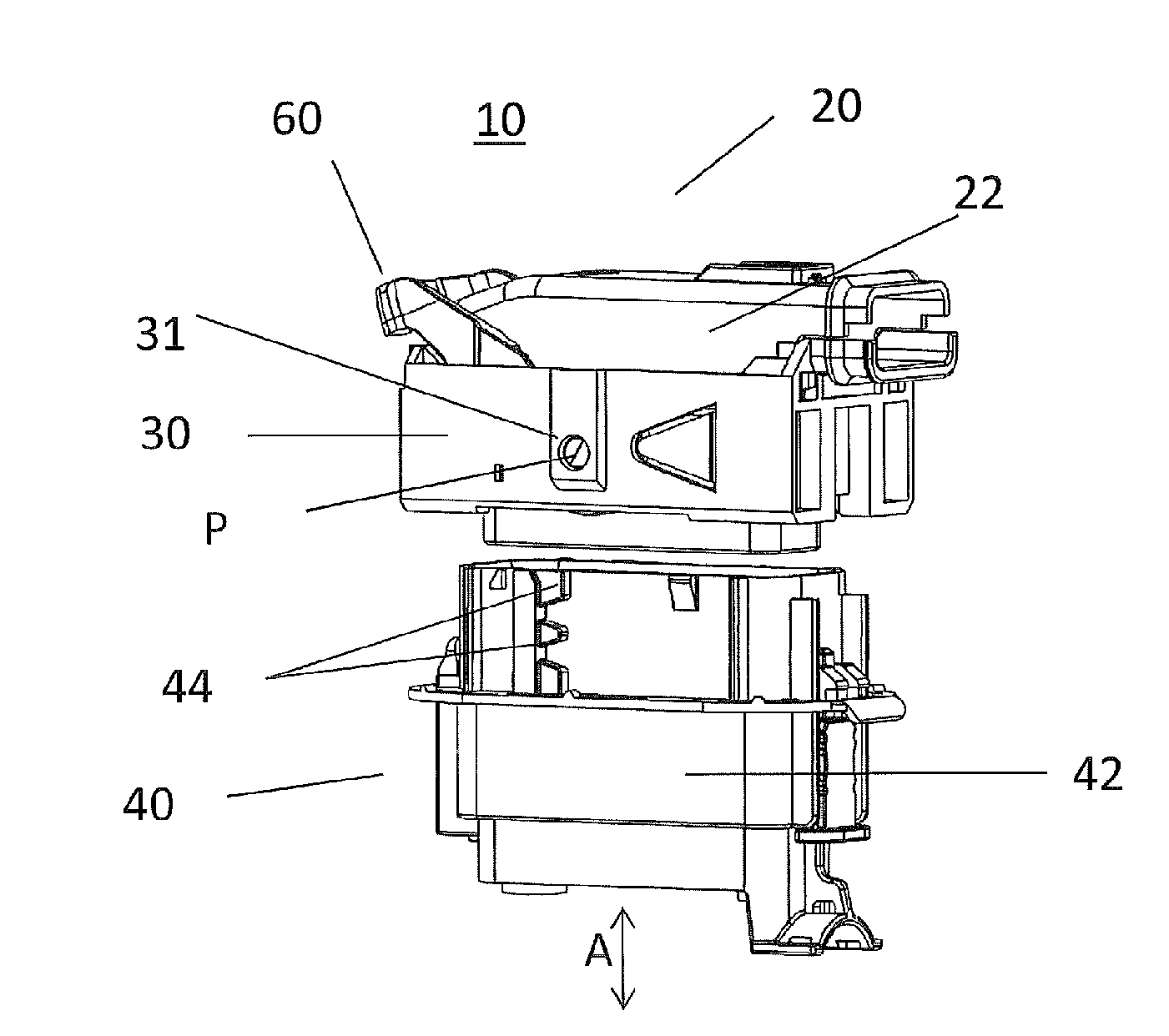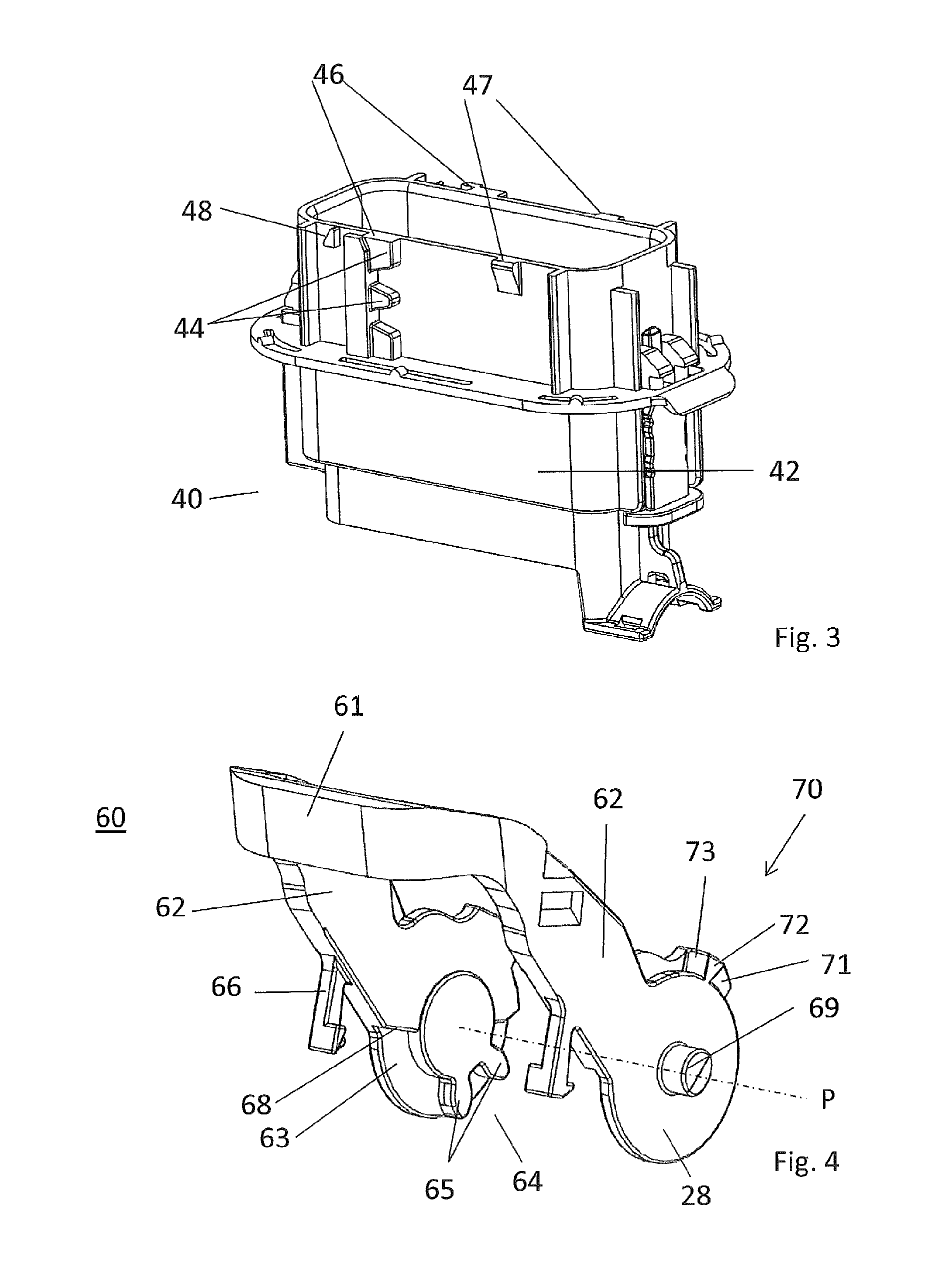Two-part electrical plug connector
a technology of electrical plugs and connectors, applied in the direction of coupling device connections, coupling parts engagement/disengagement, electrical apparatus, etc., can solve the problem of high insertion force, and achieve the effect of reasonable force and easy installation
- Summary
- Abstract
- Description
- Claims
- Application Information
AI Technical Summary
Benefits of technology
Problems solved by technology
Method used
Image
Examples
Embodiment Construction
[0036]FIG. 1 shows a first connector 20 which is inserted through an opening 102 in a sheet metal wall 100. It can be seen from this drawing why it is necessary to provide a connector which is flat and in which the lever in the inoperative position lies approximately in the plane of the contact elements and does not protrude from the first connector 20 transversely to the opening 102.
[0037]FIG. 2 shows the connector system 10 according to the invention. The first connector 20 comprises a first housing 22, the lever 60 and the frame 30; the lever 60 is mounted pivotally around pivot point P. The second connector 40 comprises a second housing 42 that has a first tooth system 44 on its surface.
[0038]FIG. 3 shows a perspective view of the second connector 40. The upper area shows two supporting areas, 46 and 47, on which, when fitted together, the first connector 20 rests during the connecting process. The supporting areas 46 are provided for the lever 60, and the supporting areas 47 ar...
PUM
 Login to View More
Login to View More Abstract
Description
Claims
Application Information
 Login to View More
Login to View More - R&D
- Intellectual Property
- Life Sciences
- Materials
- Tech Scout
- Unparalleled Data Quality
- Higher Quality Content
- 60% Fewer Hallucinations
Browse by: Latest US Patents, China's latest patents, Technical Efficacy Thesaurus, Application Domain, Technology Topic, Popular Technical Reports.
© 2025 PatSnap. All rights reserved.Legal|Privacy policy|Modern Slavery Act Transparency Statement|Sitemap|About US| Contact US: help@patsnap.com



